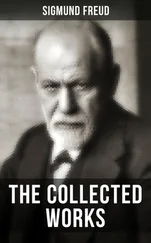I had known Ezra Pound in America at the same time; now Ezra comes as if to join forces with Frances. He says ironically, “Since when have you been so happy as this — since yesterday?”
They seemed banded against me; so many people had tried to break my faith. I said to Ezra, “I couldn’t believe Freud would take me — and I am going now every day.” Bryher seems to appear, as she did in actual life, to take the place of Frances. We discuss someone — who? Perhaps it was Ezra or it may possibly have been Lawrence, whose fiery diatribes sometimes reminded me of the early Ezra. In my dream, the Professor restores my faith. “If I had known Ezra, I could have made him all right,” he says.
In my dream I suddenly associate the Professor’s semicircle of little images with bottles. I remembered how, when he returned my smelling-salts, he said that he believed “this belongs to you — a little green bottle?”
When I told the Professor that I had been infatuated with Frances Josepha and might have been happy with her, he said, “No — biologically, no.” For some reason, though I had been so happy with the Professor (Freud — Freude), my head hurt and I felt unnerved. Perhaps it was because at the end I tried to tell him of one special air-raid when the windows of our room in Mecklenburgh Square were shattered.
6:30
The Professor had said, when I told him of Frances and Ezra and their apparent lack of sympathy or understanding of my delight in the analysis, that I was escaping from unwonted memories or putting them aside; he said I was leaving the situation or the solution to psychoanalysis.
For the time being, I leave my conflicts, trusting they will be solved or resolved in the dream.
In the dream we wander along the Nile in Egypt or the Lehigh or the Delaware Rivers in Pennsylvania, or we find some portion of the “lost” home or the “lost” love by the Danube, the Thames, or Tiber. The dream in that sense is itself Osiris, the world beyond, death or the world across the threshold of waking life, sleep. We do not always know when we are dreaming.
I tried to outline several experiences I had had on my first trip to Greece. I have tried to write of these experiences. I fact, it is the fear of losing them, forgetting them, or just giving them up as neurotic fantasies, residue of the war, confinement and the epidemic, that drives me on to begin again and again a fresh outline of the “novel.” It is obviously Penelope’s web that I am weaving.
I can decide that my experiences were the logical outcome of illness, separation from my husband, and loss of the friendship of Lawrence; but even so I have no technique with which to deal with the vision. It was as if a curtain had dropped, what Stephen Guest once referred to as an “asbestos curtain” between the ten years of my life away from America, and the then (spring 1920) present. I had sailed from New York, as I remember in summer 1911, but I believe I met Frances the year before, 1910, the comet-year.
The first decade of my adventure opened with the Argo, Floride, a small French-line steamer, sailing for Havre. The second decade of my adventure with the Argo, Borodino, a boat belonging to “one of the lines,” Bryher’s phrase for her father’s shipping. The third decade of my cruise or quest may be said to have begun in London with my decision to undertake a serious course of psychoanalysis, for my own immediate benefit and also to fortify me for the future.
We cruised about my childhood. Miss Chadwick was most helpful. She could not follow the later developments. We cruised back and forth, Switzerland and a short visit to Berlin. Dr. Sachs was going on to see his family in Vienna so I preceded him there, via Prague. I had only a few talks with Dr. Sachs in Vienna, but it was there I decided that the best thing, if possible, was to work direct with the Professor. Sorting books, manuscripts, note-books, I felt as if I were indeed making ready for a last voyage out. But in the general house-cleaning, I did not get on any further with the “novel,” though I could not bring myself to destroy the last rough copies. There it is hanging over me, that “novel.” The man on the Borodino, a certain Mr. Van Eck (we will call him for convenience) was a man on the Borodino, but the Man was not Mr. Van Eck.
I did not encounter him often. We were three weeks at sea, that is counting time put in at Malta and Gibraltar. There was a terrific storm, there had been nearly a gale crossing the Atlantic that first time, but it amounted to more than a gale if you take into consideration the size and condition of the Floride, then on its last crossing. The Borodino was more than seaworthy, it was metal-lined, had been used as a mailship in the navy during the war. It had been selected for us for this reason by Bryher’s father. There were still floating mines everywhere.
I tell the Professor in detail of how I met the Man who was not Mr. Van Eck. It is true I thought he was Mr. Van Eck but there was a catch. I knew that from the beginning. Mr. Van Eck had a startling heavy scar above his left eyebrow; it was noted in his passport, under any noticeable marks. The captain I remember spoke of it. The Man on the boat had no scar above his left eyebrow.
So far, so good.
I have written or so often tried to write of my experience of the Man on the boat that it is not difficult to tell the story to the Professor. The chief “meeting” was in February, a few days out from the port of London. There had been rough weather and I was told that the Bay (I had not heard the Bay of Biscay referred to as the Bay before) was always rough, anyway. I had been trudging round the deck with Bryher and Dr. Ellis, who was with us. I wore an old blue jacket, a beret as they now call our old tam-o’-shanter, and low deck-shoes. The costume is homely but suitable to the occasion and as I slip and slide on my unusually sea-worthy legs, I am indeed in a new element. I am in an old element too; I am adolescent and a fresh strength has come to me even in these few days at sea, out from London.
I could not have invented a costume that would have been more suitable, that would better have expressed my state of renewed girlhood or youth. I was surprised that the deck was completely deserted and that the wind had fallen. It was, by clock time, before dinner as I had gone to the stateroom to change as usual. Perhaps in the stateroom I had thrown myself down on my bunk to rest for a few minutes before undertaking the arduous task of unearthing fresh clothes from the suitcase. It was a small cabin but the best on the boat. But the boat was not officially a traveling vessel. There had been double rows of partitioned bunks run up, one imagined, for convenience of the few travelers taken on as a special privilege (at that time, sailing accommodations had to be booked months or even years in advance). There was, as I remember, perhaps one hook on the door. In any case, it was very rough. Perhaps I had thrown myself down on the bunk for a few minutes’ rest before changing.
Perhaps I was there in the bunk, normally resting, when I climbed the now level flight of steps to the upper deck. Well, it was quiet. But the fresh air was stimulating, a fresh tang, a fresh taste though it had all been a sort of breath of resurrection anyway, since we sailed down the river on that late afternoon of early February 1920.
Still the deck was, considering all things, in some special way swept you might say and garnished. There were no odd deck chairs about, no boy stooping to rescue cushions or assemble forgotten rugs. To be sure, there had not been many people on deck when we had parted with Dr. Ellis, that few minutes ago.
Читать дальше











